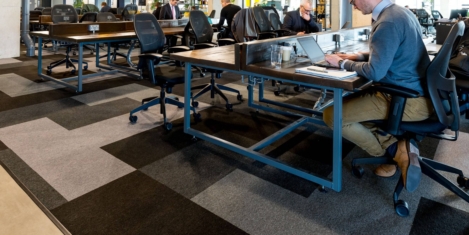July 27, 2018
Half of CIOs say Artificial Intelligence will lead to more jobs and improve productivity

Fears that Artificial Intelligence will destroy the job market are not shared by more than half (51 percent) of UK CIOs who see AI as a job creator. This is more than three times the number who say that it will diminish workers’ job prospects (16 percent). For the survey UK CIOs were asked, ‘Artificial intelligence is changing the way that companies operate and people work. Do you think AI will have a positive or negative impact on job creation and recruitment?’ Their largely positive response closely reflects that of a recent PWC report which predicts AI could create as many jobs as it displaces in the UK over the next 20 years. (more…)



























 Organisations with a strong people analytics culture are much more likely to report strong business performance claims new global research from the CIPD in association with Workday. However, the survey also highlights that the wide scale adoption of people analytics practice is still low and that more needs to be done to improve skills and confidence in the HR function, particularly in the UK which is lagging behind other markets in both capability and confidence. The research also highlights the importance of access to data. It found that access to people data improves outcomes but only 71 percent of HR professionals have access to this data, and just 42 percent of finance professionals do. For those with access to people data, just 22 percent use it daily in their decision-making and almost a quarter (23 percent) use it in decision-making just once a month or less. The research, People Analytics: driving business performance with people data, surveyed 3,852 business professionals globally – including HR and finance professionals – to understand attitudes towards people analytics and how it is being used in organisations.
Organisations with a strong people analytics culture are much more likely to report strong business performance claims new global research from the CIPD in association with Workday. However, the survey also highlights that the wide scale adoption of people analytics practice is still low and that more needs to be done to improve skills and confidence in the HR function, particularly in the UK which is lagging behind other markets in both capability and confidence. The research also highlights the importance of access to data. It found that access to people data improves outcomes but only 71 percent of HR professionals have access to this data, and just 42 percent of finance professionals do. For those with access to people data, just 22 percent use it daily in their decision-making and almost a quarter (23 percent) use it in decision-making just once a month or less. The research, People Analytics: driving business performance with people data, surveyed 3,852 business professionals globally – including HR and finance professionals – to understand attitudes towards people analytics and how it is being used in organisations.








June 21, 2018
The hype surrounding wellbeing concepts can blind us to their true value
by Georgia Elliott-Smith • Comment, Wellbeing
(more…)